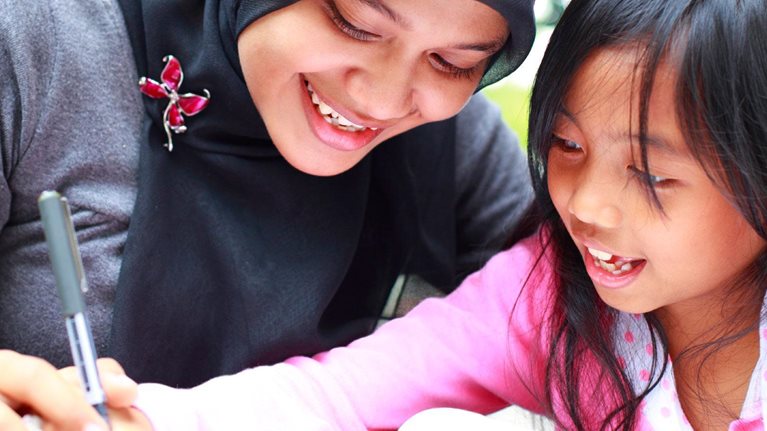The Philippines Growth Dialogues, a collaboration between McKinsey & Company and BusinessWorld, is a video series presenting the ideas of influential leaders in the public, private, and social sectors about key opportunities to “future-proof” the country’s growth. This first installment focuses on the hopes and expectations for the overall economy and society of the Philippines leading up to 2040. Suraj Moraje is a senior partner in McKinsey’s Manila office. Doris Ho is the president and CEO of A. Magsaysay Incorporated, which began as an owner and manager of ships, but later expanded into hospitality and tourism, transport and logistics, healthcare, oil and gas, and specialized engineering and trade.
The following transcript has been edited for clarity and concision.
Suraj Moraje
The Philippines is a country with more than 100 million people; a land mass the size of an Italy or a Poland, approximately; and a culture that is deep, diverse, and warm. We should seek to create a brand for the country and occupy a space that plays to our unique strengths. There are spaces on the world stage that are ripe for occupation by the Philippines.
Food. For example, should we “occupy” food? The Philippines has more arable land than Vietnam, and yet our agricultural exports are less than a third of Vietnam’s. With the world’s sixth-largest coastline (some sources say fourth or fifth), being based in a region that is hungry for food and growing in population and consumers, this is an industry which could be larger than BPO (business-process outsourcing) over time. Could we, for example, build a brand in the Philippines, for the Philippines, and for crops such as coconut and mango—even seaweed—where it seems like we have a competitive sector?
Services. Could we occupy warmth? The Philippines has a unique place and a very warm society, and this has been the driving force behind our success in BPO as well. We could extend the success of warmth and warm services to other industries, such as tourism and hospitality.
Healthcare. Could we occupy good health? We are the second-largest exporter of healthcare professionals to OECD (Organisation for Economic Co-operation and Development) countries, and yet it seems like there are other countries in the region that are growing their medical-tourism industry faster. Could we create a positioning for ourselves as the hospital to the region—and maybe even to the world?
Manufacturing. Could we occupy small-batch-size manufacturing? We’ve achieved success in industries as diverse as aerospace, automotive, and medical devices. How could we scale this up to be an industry that matters—both in terms of size and job creation—to the economy overall?
World-class Filipinos. There are many inspiring examples of world-class Filipinos, both in the Philippines and around the world. Our consumer-food industry here, for example, is world-class. The proof of that is that you see a growing number of Filipino companies conquering, both regionally and around the world, in the consumer-food space.
Doris Ho
Inclusive growth. I think the other great opportunity the government is putting effort into now is that maybe we can be a leader in inclusive-growth models. With all the challenges we face that are showing up everywhere, I think the status quo is no longer an option in the world. Somebody needs to lead those more inclusive, enlightened business models. And since we always seem to start things, why not the Philippines?
We can come up with more inclusive ideas. How do we bring more people into the equation to participate in the profitability of our companies? That, for me, is a very exciting idea. But then again, we have to see. Among the economies that are really good at inclusive models is the Japanese economy. The Japanese supply chain is never a big monolithic company that does it all. They really bring their partners to bring people up.
Hubs. And then there is this idea of clustering—this idea of identifying areas where we can really succeed in and then bringing in smaller businesses to support that whole ecosystem. It’s one key area that could really make a big change in bringing prosperity across the country and across the people of this beautiful place.
For example, Subic Bay already has three ship-repair and shipbuilding yards, and that is an opportunity to create a hub. Because even those three are not enough to bring the little subcontractors together. So we can decide that we’re going to become a great maritime hub offering services, including ship repair and shipbuilding. Then let’s say we use Subic as one area for a hub. We all ensure that the infrastructure is there, the ports are there, that the airport in Clark (Clark International Airport) can service the spare parts that are needed. Maybe the government enables stocking steel plates even if we don’t have a steel industry yet. Because Singapore is a hub, but it doesn’t have steel manufacturing.
It’s a matter of strategic thinking and then positioning the infrastructure to make sure that it can work. Once you have that sector, all the smaller subcontractors come along, and then all of a sudden you create a very vibrant, prosperous community.
This video also appears on the BusinessWorld site and is republished here by permission.


